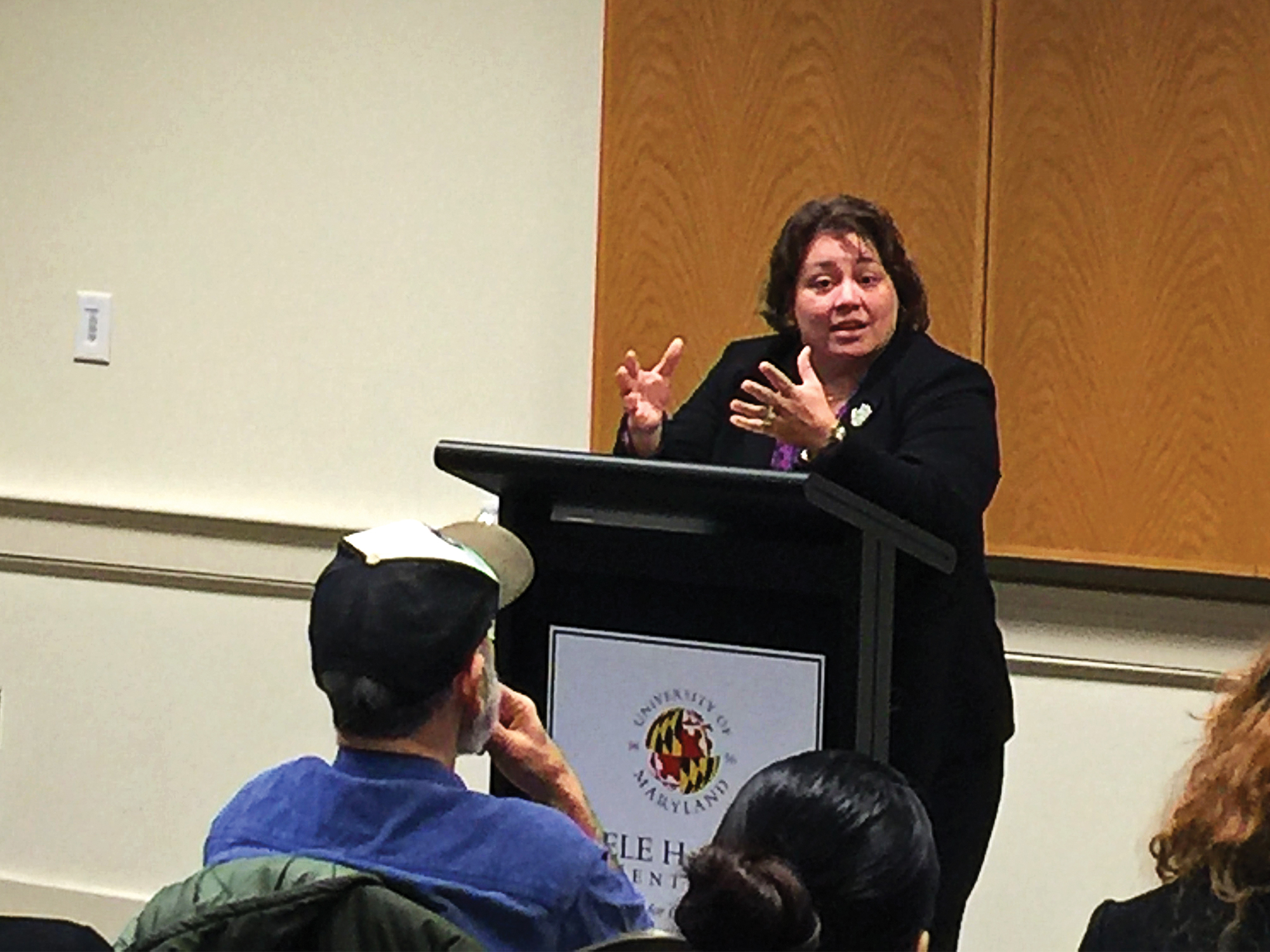By Chris Spencer
For The Diamondback
Speaking to an audience of about 25 students yesterday, Deborah Santiago, co-founder, chief operating officer and vice president for policy at Excelencia in Education, fostered a discussion about disadvantages for the Latino community receiving higher education.
The lecture in Stamp Student Union was part of the Office of Graduate Diversity and Inclusion’s new initiative, the Spring Speaker Series — a weekly lecture-based series that shows the fundamental concepts of education from the viewpoint of minorities.
She started by establishing the importance of issues within underrepresented minority communities.
“When we think about serving students, there is nothing static about it,” Santiago said. “There is nothing one-dimensional about it. There is no cookie-cutter approach that gives us an answer.”
Santiago expressed frustration that many institutions tend to think that if a tactic works toward solving Latino higher education issues in one aspect, the same strategy will benefit all areas, which she considers shortsighted.
“If you really want to be serving students, you want to see what works,” she said. “You really got to get focused on who you’re serving, and that makes a difference.”
Santiago extended the conversation about serving the Latino community in general. One problem, she said, is that there is often not a thorough investigation of crises plaguing the Latino community.
“People don’t invest in crises anymore because you see no way out of it,” she said. “It’s like feeding a black hole.”
Despite helping underrepresented minorities, Santiago expressed her disapproval of the term because it could sound derogatory in context. There should be a different term to frame the issue that could better help marginalized students as collective assets of opportunity, she said.
She also compared 18-year-old students who finish college in four years with underrepresented students who take a different path. More than 60 percent of full-time students at state flagship universities such as this university do not finish a degree in four years, according to a 2014 report by Complete College America.
“This idea of the colleges of today, they’re always focused on getting college-ready students,” Santiago said. “Instead of trying to promote college-ready students, what if we were to be called student-ready colleges?”
Students should not need to fit a certain description to be qualified as student, and colleges should make themselves more welcoming to all backgrounds, she said.
“This event is really great,” said Ivy Phillips, a graduate student studying education. “It’s really informative. … I really hope a lot more people will come to this event, because it’s really educational.”
Gudrun Nyunt, a graduate student studying student affairs, said it was beneficial to hear an expert talk about a subject she understands.
“It was interesting to learn about some of the approaches they are taking and what are some of the questions we should be asking in terms of how we can support underrepresented minority students,” he said.



